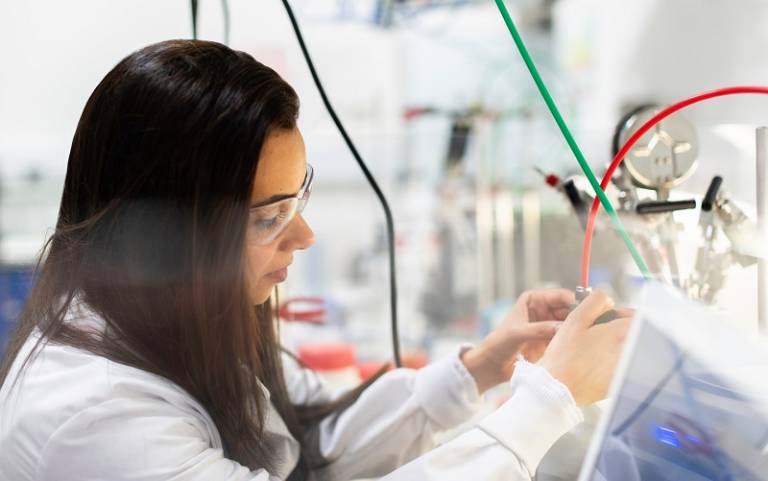Research into battery safety to aid transition to net-zero
1 April 2021
A project to improve the safety of lithium-ion batteries led by UCL researchers will receive new funding as part of a £22.6m investment from the Faraday Institution.

SafeBatt, led by Professor Paul Shearing (UCL Chemical Engineering), is one of five projects – which all involve UCL – to receive funding.
The investment of £22.6m in the projects is part of the Faraday Institution’s commitment to building momentum in four key research challenges that offer the most potential to deliver commercial impact for the UK: extending battery life, recycling and reuse, battery modelling and solid-state batteries.
Better-functioning batteries are seen as a key part of society’s transition to net-zero emissions as they are needed to power electric vehicles and to store energy from renewables.
Professor Paul Shearing (UCL Chemical Engineering) said: "SafeBatt will take an integrated approach to understanding the science behind lithium-ion battery safety at multiple scales, integrating safety considerations through the lifetime of the battery.
"The team will work to improve understanding of the root causes of battery cell failure and the underlying physics around failures that can lead to fires. It will also investigate the environmental consequences of fires involving lithium-ion batteries and explore the interplay between battery ageing and battery safety. Using a portfolio of advanced experimental, modelling and design tools, we aim to advance the science of battery safety and hope to contribute to enabling improvements for the automotive, aerospace and stationary storage sectors."
Minister for Investment Gerry Grimstone said: “The Faraday Institution’s vital research into energy storage is pivotal for meeting our net-zero commitments, particularly as we shift to low-emissions transport on our roads and in our skies. I’m delighted that we’re continuing to support their valuable work as part of our commitment to strengthen the UK’s science and research sector, ensuring we build back greener from the pandemic.”
The Faraday Institution’s CEO Professor Pam Thomas said that projects it funded were delivering scientific discoveries and the Faraday Institution was now strengthening its commercialisation strategy. “In doing so, we are directing even more effort towards those areas of battery research that offer the maximum potential of delivering commercial, societal and environment impact for the UK,” she explained.
The other projects are:
- Extending battery life, led by the University of Cambridge
- Battery modelling, led by Imperial College London
- Recycling and resuse (ReLiB), led by the University of Birmingham
- Solid-state batteries (SOLBAT), led by the University of Oxford
The Faraday Institution’s funding integrates research previously carried out in several different projects. The five research projects will progress over the next two years to March 2023, subject to funding renewal of the Faraday Institution beyond March 2022.
The Faraday Institution is an independent institute for electrochemical energy storage research, skills development, market analysis and early-stage commercialisation.
Links
- SafeBatt
- Professor Paul Shearing’s academic profile
- UCL Chemical Engineering
- UCL Engineering
- Faraday Institution
Image
Source
Media contact
Kate Corry
Tel: +44 (0)20 3108 6995
Email: k.corry [at] ucl.ac.uk
 Close
Close

